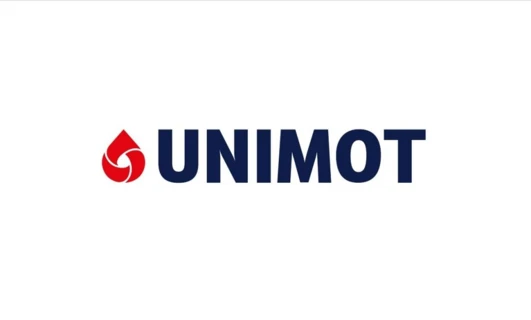AsstrA-Associated Traffic AG tests HVO100 fuel at the AVIA Station in Myszęcin – another step towards transport decarbonization
On January 4, 2025, the first test fueling of a Renault Trucks tractor operated by AsstrA-Associated Traffic AG with HVO100 fuel took place at the AVIA station in Myszęcin. UNIMOT, the owner of the AVIA station network and the exclusive distributor of this fuel at petrol stations in Poland, actively supports the reduction of greenhouse gas emissions by offering innovative alternative fuels.
HVO100 – the foundation of a sustainable energy transition
Decarbonizing transportation requires a synergy of advanced technologies, close cross-sector collaboration, and the implementation of effective regulations. In this context, HVO100, a low-emission fuel produced from materials such as used vegetable oils, serves as a cornerstone in efforts to reduce greenhouse gas emissions. With its unique properties, HVO100 aligns with global ambitions to minimize the carbon footprint and effectively supports the implementation of sustainable development strategies by reusing resources that are already in circulation.
“As a leader among fuel importers in Poland, we are pleased to start cooperation with AsstrA-Associated Traffic AG, whose activities focus on building sustainable supply chains. HVO is an efficient solution that enables the reduction of carbon footprint emissions without the need to invest in a new fleet or its modification. It is a practical and accessible alternative to traditional diesel oil, allowing our partners to seamlessly work towards achieving their environmental goals. The implementation of the HVO fuel project is based on a comprehensive, multi-stage plan – from operational testing and technical analysis to the optimization of delivery logistics,” emphasizes Wojciech Iwulski, Climate Solutions Director at UNIMOT S.A.
Comprehensive approach to HVO100 implementation
UNIMOT Group offers the implementation of HVO100 fuel based on a well-thought-out and flexible plan developed with the involvement of UNIMOT’s experts, who support clients at every stage of the process. This approach involves various actions, such as test refueling of a specific amount of fuel to practically assess its efficiency during daily operations, as well as technical analysis conducted jointly with engine manufacturers to confirm full compatibility with vehicle fleets.
Another key element is the detailed verification of fuel documentation to meet the requirements of key stakeholders, including clients, financial institutions, and insurers. Additionally, procedures related to the management of purchasing documentation are introduced, and a tailored logistics plan is developed to align with the specific characteristics of transport routes and the locations of recipients across Poland.
Such a comprehensive and individualized approach ensures the effectiveness of the implementation process while maximizing the potential offered by HVO100 fuel.
Partnership with AsstrA-Associated Traffic AG and Renault Trucks Polska – innovation in practice
The collaboration between the UNIMOT Group, AsstrA, and Renault Trucks Polska serves as a model example of integrating alternative fuels into the transportation sector, bringing together key supply chain elements: the carrier, freight forwarder, and fleet manufacturer. The project included a pilot implementation of HVO100, enabling a practical assessment of the fuel’s applications under the specific logistical conditions of the partners.
“We focus on innovations that genuinely contribute to reducing our clients' carbon footprint. By using this new eco-friendly fuel, we not only minimize environmental pollution but also support the transformation of the logistics industry,” says Dmitri Krõlov, Sustainable Development Manager at AsstrA-Associated Traffic AG.
During the project, key aspects were analyzed, such as technical compatibility, adjustment of operational documentation, and delivery logistics planning. Of particular value was the opportunity to exchange experiences between partners, which strengthened the collaboration potential and supported the implementation of common decarbonisation goals.
“The collaboration between companies such as AsstrA, Renault Trucks Polska, and UNIMOT S.A. demonstrates that combining innovative technologies with a responsible approach to the environment can bring real results in the fight against climate change,” emphasizes Jarosław Zwoliński, Key Account Manager at Renault Trucks Polska.
The project confirmed that such initiatives can effectively support both the transformation of the logistics industry and the reduction of carbon footprints, which is crucial in the context of environmental protection efforts.
HVO100 – an investment in partnership and innovation
UNIMOT Group consistently diversifies its offering, focusing on increasing the share of low-emission products and services, such as HVO100, providing companies with real opportunities to support their operational and environmental goals.
The test refueling in Myszęcin is an example of exemplary collaboration aimed at effectively implementing innovative solutions in transportation. Partnerships with recognized companies such as AsstrA-Associated Traffic AG and Renault Trucks Polska are proof of the added value that the UNIMOT Group brings to the realization of transport projects. Thanks to joint efforts, it is possible to efficiently implement modern solutions while supporting sustainable development.
HVO100: A next-generation fuel supporting the decarbonization of transport
HVO100 (Hydrogenated Vegetable Oil) is a technologically advanced synthetic fuel intended for vehicles with diesel engines*. Compared to traditional ON-B0 diesel oil, HVO100 is characterized by up to 90% lower greenhouse gas emissions, including CO2, calculated taking into account the entire fuel life cycle - from production, through transport, to combustion, which makes HVO100 an important tool in decarbonization transport sector. This result is confirmed, for example, by the conversion rates adopted by the British administration when reporting emissions** (Department for Environment, Food and Rural Affairs UK). Reducing greenhouse gas emissions results from the application of the principles of the circular economy, i.e. the use of renewable raw materials, such as used vegetable oils. CO2 emissions generated during the combustion of HVO100 are considered climate neutral because they are compensated at earlier stages of the fuel's life cycle. In the face of global climate challenges and EU regulations on reducing greenhouse gas emissions, HVO100 is gaining importance by supporting efforts to minimize the carbon footprint of transport.
*Before using HVO100 fuel, ensure that your vehicle is suitable for this purpose according to the manufacturer's recommendations.
** Department for Environment, Food and Rural Affairs UK - Conversion factors 2023: https://www.gov.uk/government/publications/greenhouse-gas-reporting-conversion-factors-2023



